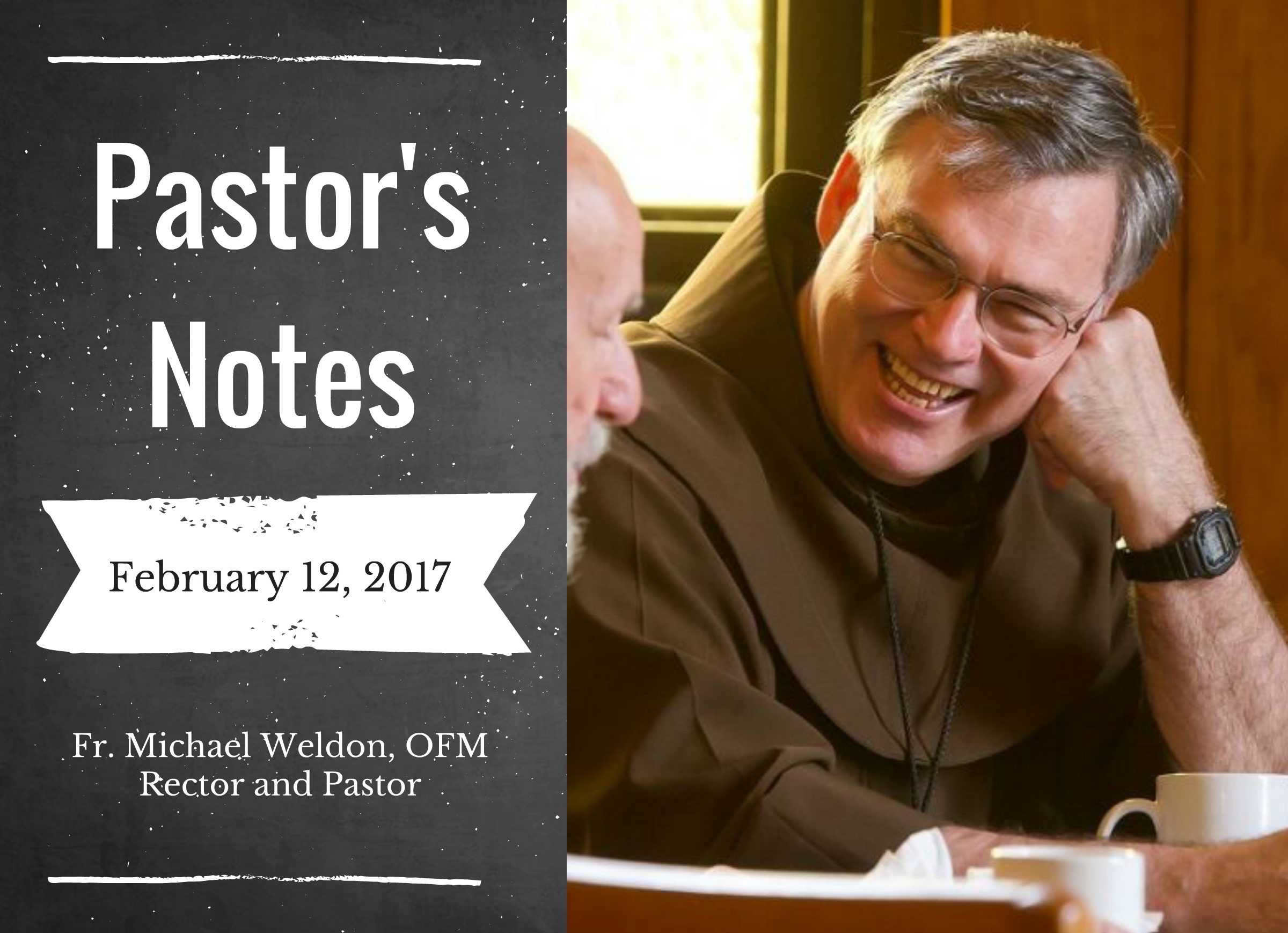St. Mary's Basilica
Phoenix, Arizona
Pastor’s Notes

Did you ever read John Steinbeck’s novel East of Eden? There is a great scene toward the end of the book in which a group of Chinese cooks and wizened elders from San Francisco’s China Town study a Hebrew text from “Sirach,” part of this weekend’s first reading. Are we predisposed to evil? Or just hopelessly set up for the “dark side?” Our lack of civility in politics and business, especially when we disagree with each other, makes one wonder these days. But at the conclusion of Steinbeck’s wonderful story, the sages say, “no!” We have a choice. “Thou mayest.” We have the “where-with- all” to say yes or no. That is so reassuring as we step through all the choices in front of us these days. You may; or – on the other hand, you may not.” Before us“…are life and death, good and evil, whichever he chooses shall be given him.”
We have been given the power to choose, and with that power comes responsibility. God made we human beings so wonderfully interesting. Religious faith is intended to be a guide to life, to choosing the good so that we can lead fruitful and joyful lives. Too often, though, our tradition feels like a stifling set of rules and demands on our time and money. Much of the challenge of evangelization in our time involves helping people to see that faith offers them positives rather than negatives, that the church is a place that fosters a full and rich life of love and joy. It is a holding place for our disagreements as we discern God’s voice in the chaos of it all.
Jesus challenges us in St. Matthew’s Gospel, to look deeply into the commandments to see the holy values at their core. Then apply the values to the task at hand. This requires a certain level of maturity. In his letter to the Corinthians, St. Paul suggests, “We speak a wisdom to those who are mature, not a wisdom of this age.” This kind of discernment is necessary for moral choices, as Pope Francis continues to point out. “We have been called to form consciences, not to replace them,” he wrote in his recent apostolic exhortation on the family (“Joy of Love” #37).
I don’t know that Jesus really meant, “pluck out your eye;” rather divert your eyes when you know your gaze is not respectful. Pull the “I” out of the equation. I am not sure he meant, “cut off your hand,” rather to be aware what that hand is capable of before choosing to act. Jesus asks that we not let the laws become stumbling blocks, but instead be a foundation for growth. Don’t go to the altar without taking responsibility for one’s actions. Forgive, make amends, and then bring one’s gift to the altar.
This weekend we are asked to consider commitment to the Bishop’s Charity and Development Appeal. We are offered some choices at the service of the Gospel for the Church of Phoenix. Join us.
A gentle week.
Fr. Michael Weldon, OFM
Thanks is expressed to recent articles by Celebration’s Fr. Lawrence E. Mick and Gloria Couvion.
